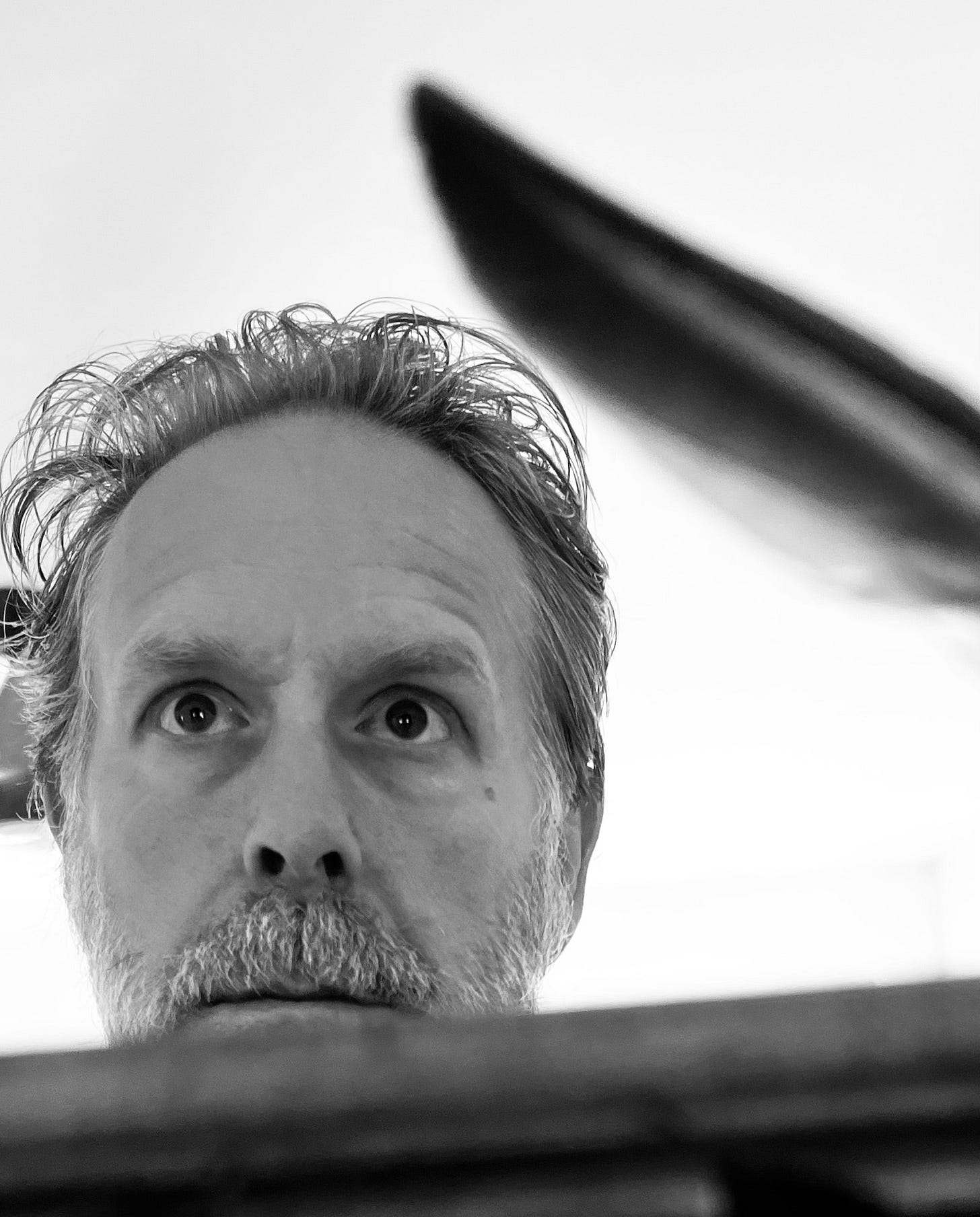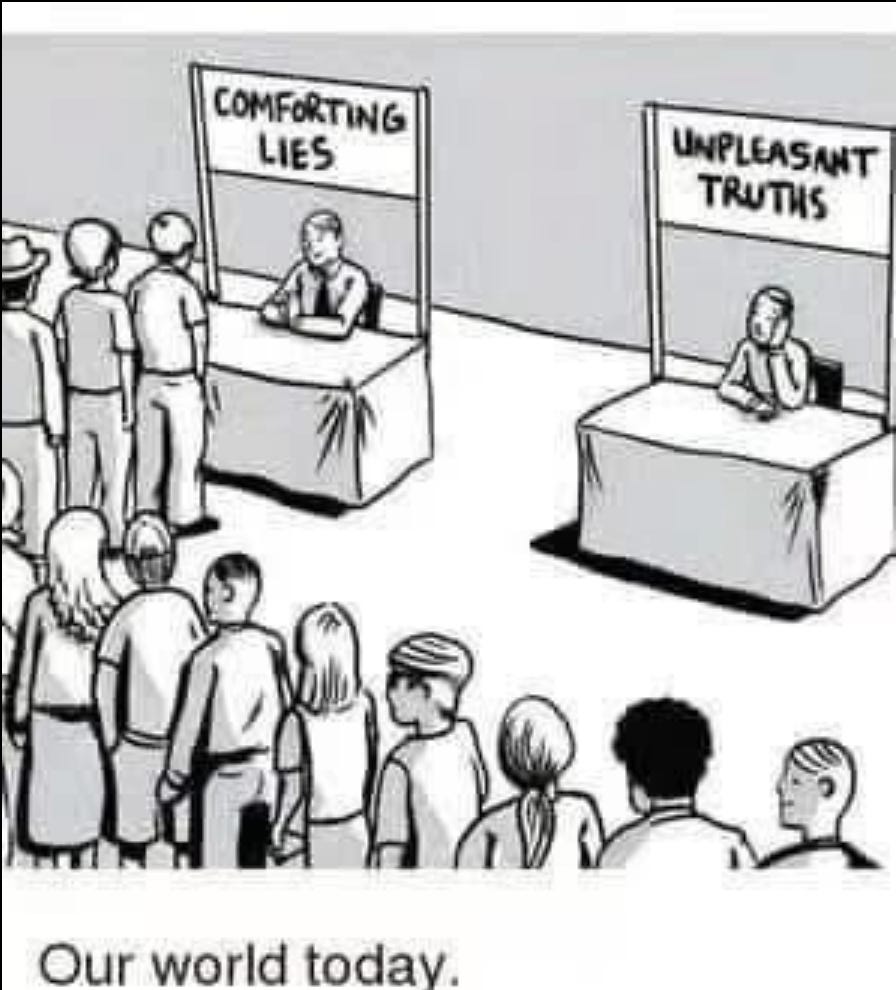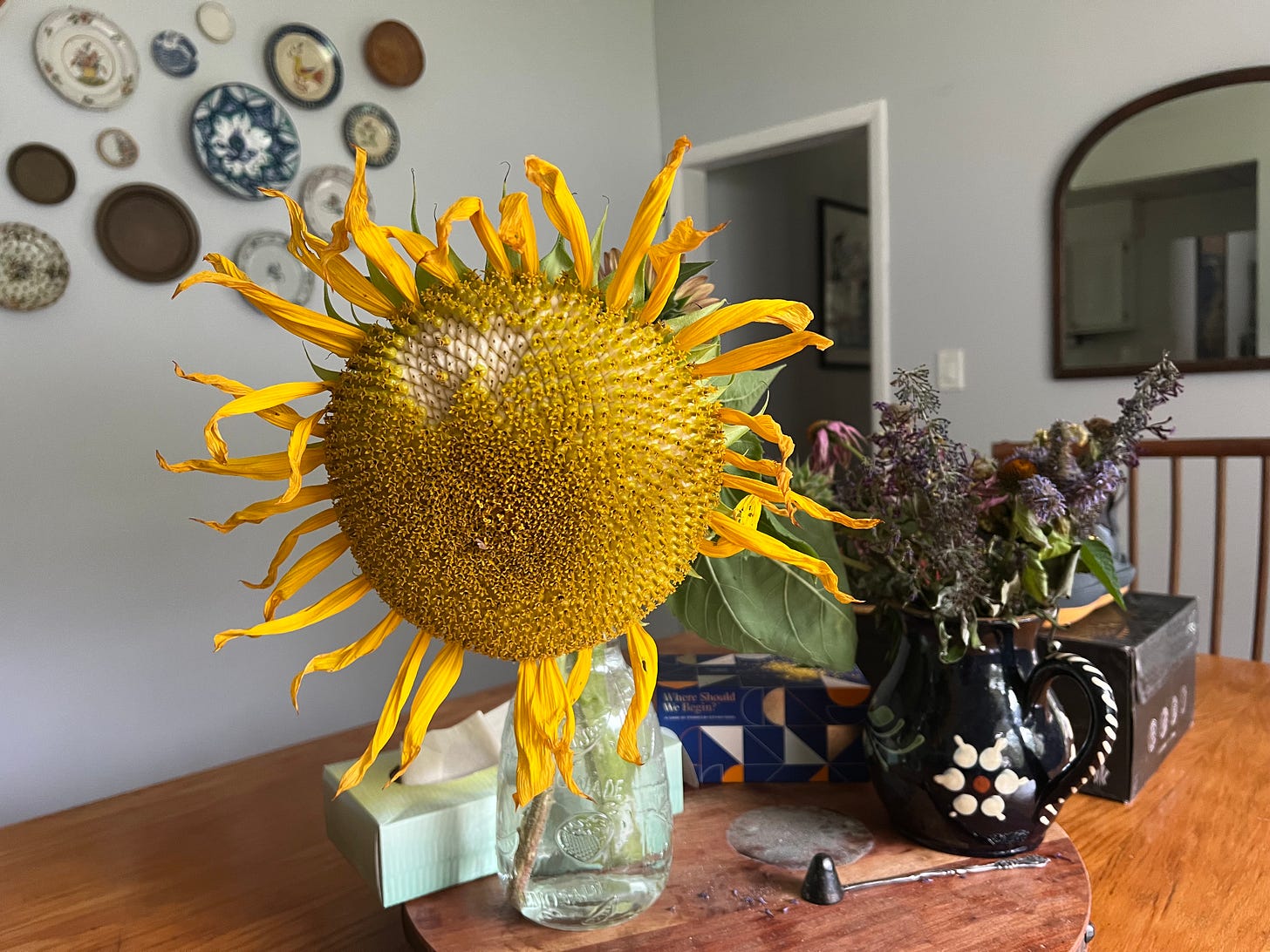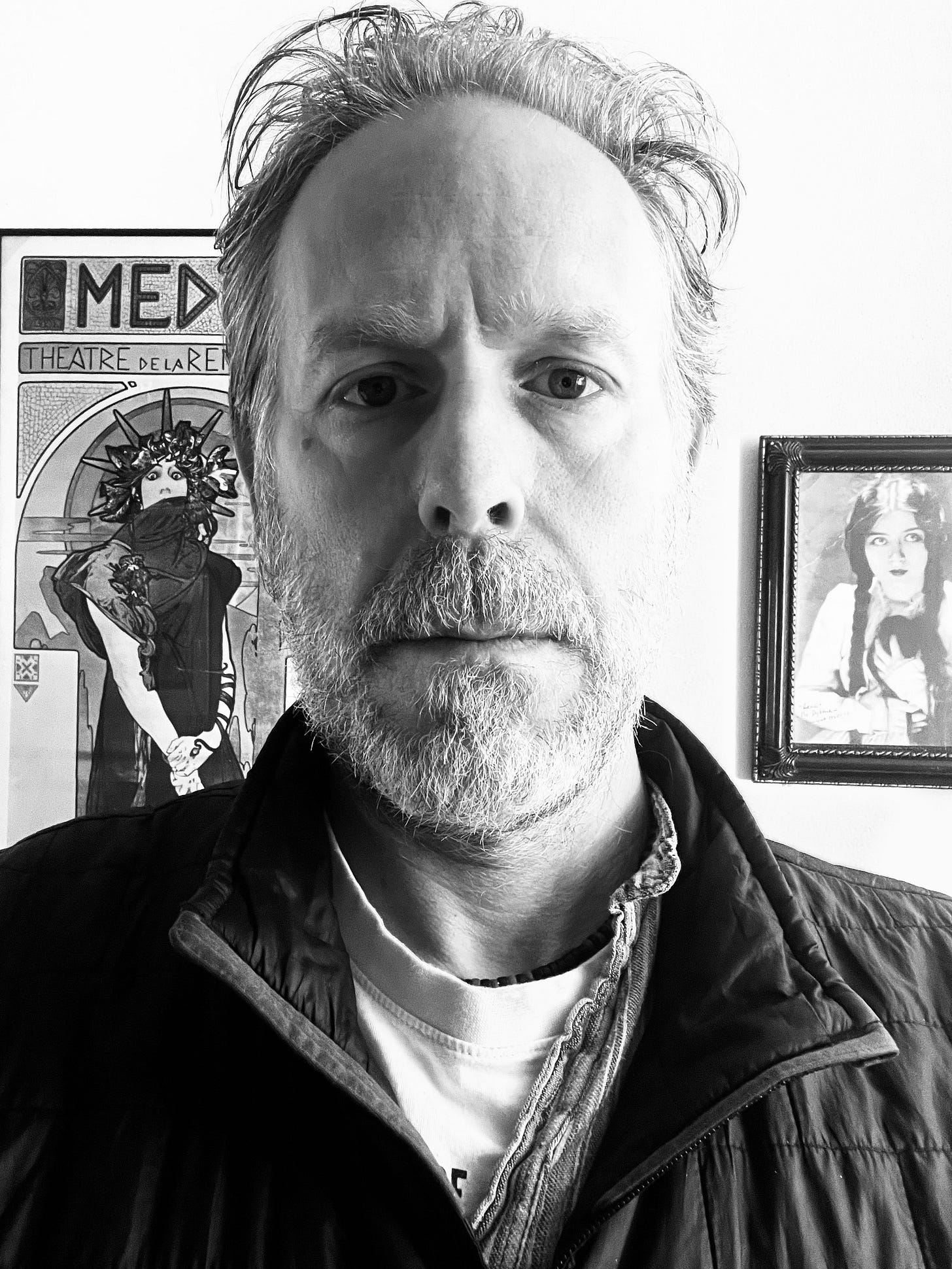So much talk about division. Left and right political speak mostly which, to me, is superficial horseshit. There’s something brewing underneath and many sensitive people feel it. “A beast that has lain fettered for an infinitely long time. And when it’s free, it’s first movements won’t be the gentlest.” So says Hermann Hesse through the voice of Demian in his novel of the same name. The beast he was referring to arrives as WW1. Hesse describes Demian’s home, a haven for oddballs, like this, “we were aware or in the process of becoming aware and our striving was directed toward acheiving a more and more complete state of awareness while the striving of others was a quest aimed at binding their opinions, ideals, duties, their lives and fortunes more and more closely to those of the herd.” Are we hard-wired by culture to divide the world into polarities: right wrong, good bad, either or, success failure, red blue? In Jungian analysis, this division is called splitting.
Although it distorts reality, splitting reduces anxiety by locating the problem “out there,” allowing us to reject what we find aversive and affirm our own virtue, self-worth, and blamelessness. The capacity for ambivalence—the ability to hold opposite feelings—requires more differentiated cognitive skills and emotional range. Can we bear anxiety in the face of what seems intolerable without retreating to the fortress of one-sided (usually righteous) certainty? Doing so can increase capacity for objectivity, self-reflection, and ability to bridge the split.
There’s a genocide happening in real time and I often wonder how easily it’s swept under the rug. The division, to me, is a vast epidemic of numbing and I can only describe it as complacency. It doesn’t take a lot of courage or energy to speak up against tyranny. We all have a platform in our pockets, it’s called a “smart” phone. Sadly, this method of communication has made us incredibly lazy and self-serving. One new beast looming is called artificial intelligence. It will pummel our minds and stifle critical thinking and creativity like nothing we’ve ever known, far surpassing the prior affects of social media algorithmic conditioning and confirmation bias . Once AI takes hold of our consciousness (or what’s left of it), the frog in boiling water effect will create a nostalgic yearning for the years of TikTok, Facebook, X and Substack. The oddballs Hesse refers to in Demian will be huddling in caves while the herd will zombify and reject any further notion of freedom.
“Life is tragic simply because the earth turns, and the sun inexorably rises and sets, and one day, for each of us, the sun will go down for the last, last time. Perhaps the whole root of our trouble, the human trouble, is that we will sacrifice all the beauty of our lives, will imprison ourselves in totems, taboos, crosses, blood sacrifices, steeples, mosques, races, armies, flags, nations, in order to deny the fact of death, which is the only fact we have. It seems to me that one ought to rejoice in the fact of death – ought to decide, indeed, to earn one’s death by confronting with passion the conundrum of life.”
I often turn to James Baldwin when attempting to figure things out. Where are the James Baldwins now?
“Love takes off the masks that we fear we cannot live without and know we cannot live within.”
Oh, how Jimmy sows words like blossoming sunflowers.
I was recently described as someone with a “martyr complex”. I take that as a compliment. I’m not much of a David Brooks fan but my uncle Ed sent me a recent op ed of his in the NYTimes titled The Wrong Definition of Love. It speaks to what’s evolved into a “look at me” culture where loving yourself is considered paramount whereas serving others and the world is, to some, a form of martyrdom. Brooks describes this cultural shift as, “love blooms when somebody else makes you feel understood and good about yourself”. He goes on to opine how there’s more of a focus on caring for self than others in the current “self-help” trend. The martyr comment was likely based on me putting others’ comfort above my own, something I’ve innately done my whole life as modeled by my elders. I assume the labeling was an attempt to assuage guilt. I would have preferred a simple thank you.
The Brooks piece is worth a read. I agree with Erich Fromm when he argued that love is not a feeling, it’s a practice. “Love is the active concern for the life and growth of that which we love.” Brooks summarizes this as “a series of actions that requires discipline, care, respect, knowledge and the overcoming of narcissism.” I summarize it as serving others is a-okay in my book. I remember how much I loved getting up early on work/school days, before my kids, preparing for them a delicious and healthy breakfast and enjoying their company even if they were unable to utter a word in their morning state of delirium. It doesn’t bother me to eschew my own comfort for loved ones or strangers. My dear friends, Eleanor and Jonathan Hildebrandt, embraced a life-long motto, “lighten the load”. I witnessed them walking the walk, not just talking the talk. Is this kind of service a lost art? Jonathan used to also say, “every stranger is a friend I haven’t met yet”. Both sentiments embody the idea of love as service.
Certain people close to me wonder why I write. I’ve been accused of inflicting self-harm, coming off as a victim, transparent to the point of causing discomfort… could this be a form of martyrdom? I am simply unable to contain myself. As I said recently, “I can either write or bottle it up and let it manifest in other ways.” In short, I feel writing and cooking are two forms of service. It’s my attempt at practicing what now seems like a nostalgic form of love. Sometimes it’s tough love. Sometimes it’s speaking uncomfortable truths. I once wrote the following and it applies here:
A bomb is just a lump of metal and parts until we assign its purpose. A rose is just another flower until we give it to someone we love. We may agree the items are neutral because the bearer supplies the meaning and purpose. The bearer decides whether a pen writes love letters or hate mail. When we write love letters, we connect. When we write hate mail, things are torn apart. The choice is ours, and our ongoing experience of life is a consequence of the choices we make and the intent we set. It’s this obvious, this easy. If I’m hungry and you’re hungry and I have a plate of food in front of me, I can share it with you or, if you’re starving, provide a full meal. That’s free will. This immediately shifts things because otherwise we’ll both go hungry, bereft of love. Choosing life, choosing compassion and kindness is a pathway to love. Choosing hate, violence and killing won’t serve anything except more of the same. It’s a simple case of cause and effect. We create impact through intention.






I like this piece a lot Josh. On writing, I understand you. Joy was prolific and effortless in that world of hers. After she passed, three years now come November, I revived an old habit of writing a haiku every morning, trying valiantly to cross my own borders of love, loneliness, regret and gratitude. For a while I stuck with classic structure but soon found it boring and tiresome and lacking energy. There are only four seasons after all and I couldn’t find a rhythm. These poems are supposed to write themselves through the poet, and though many were hitting the mark, many were not.
After I met my new friend Glaeshia, and our second physical attempt at meeting was washed away the day before by Hurricane Helene, I was inspired to try my daily poetry on her through a haiku a day. This time it is free form, with 5-7-5 being the only structural restriction. 48 weeks later, having not missed a morning, the words just seem to come to me in waves that I get to ride. Sometimes I don’t need to surf, I become the wave and it is exhilarating.
It is through this lens that I am witnessing a new poet, one who illustrates that light reflected by a dark mirror is still light escaping darkness. Love you.
Glad to find you.